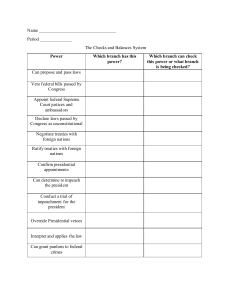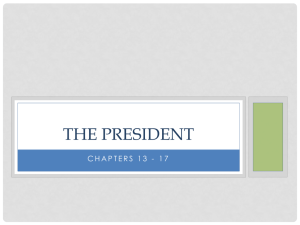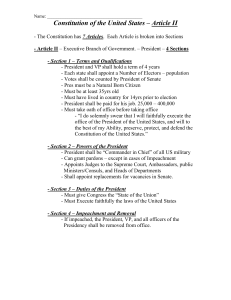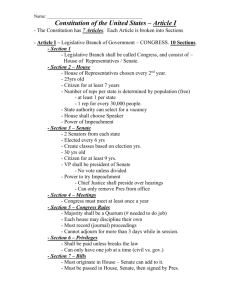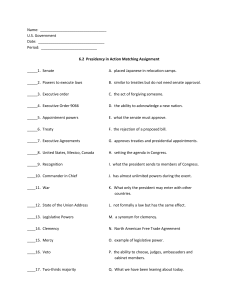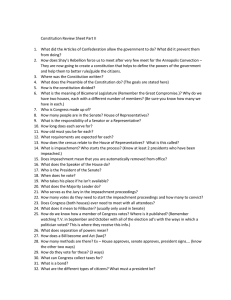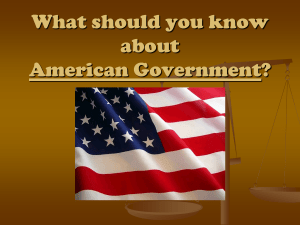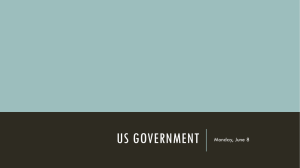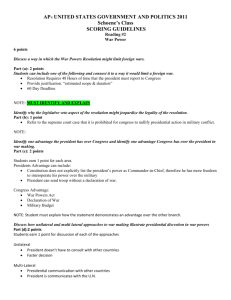On Presidential Power
advertisement
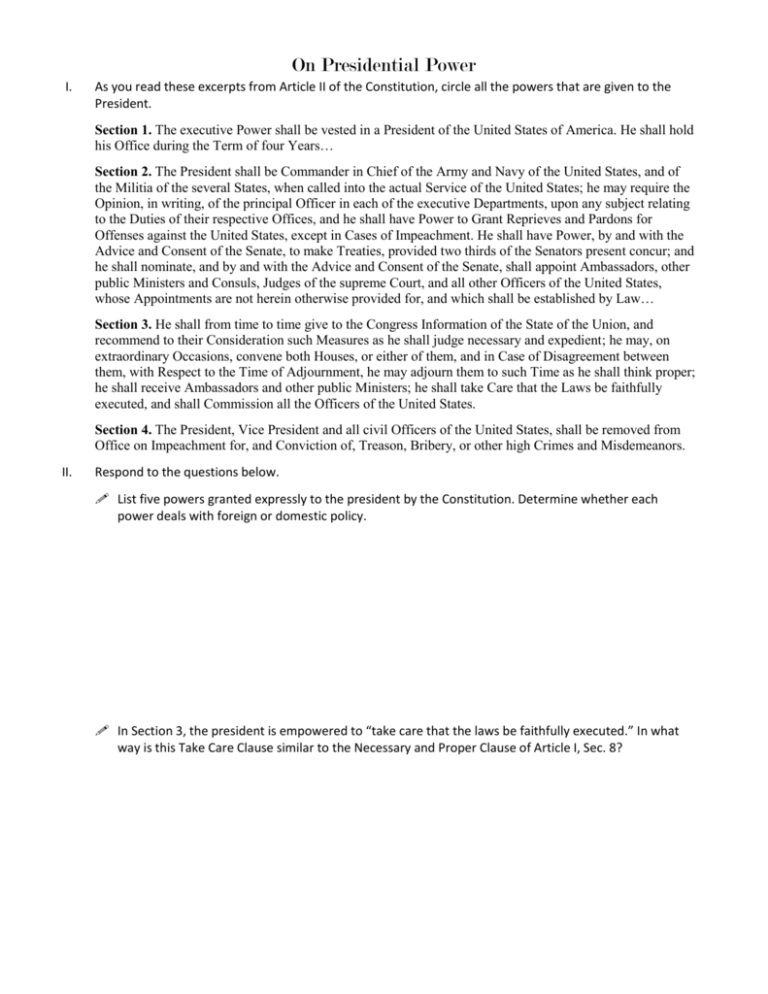
On Presidential Power I. As you read these excerpts from Article II of the Constitution, circle all the powers that are given to the President. Section 1. The executive Power shall be vested in a President of the United States of America. He shall hold his Office during the Term of four Years… Section 2. The President shall be Commander in Chief of the Army and Navy of the United States, and of the Militia of the several States, when called into the actual Service of the United States; he may require the Opinion, in writing, of the principal Officer in each of the executive Departments, upon any subject relating to the Duties of their respective Offices, and he shall have Power to Grant Reprieves and Pardons for Offenses against the United States, except in Cases of Impeachment. He shall have Power, by and with the Advice and Consent of the Senate, to make Treaties, provided two thirds of the Senators present concur; and he shall nominate, and by and with the Advice and Consent of the Senate, shall appoint Ambassadors, other public Ministers and Consuls, Judges of the supreme Court, and all other Officers of the United States, whose Appointments are not herein otherwise provided for, and which shall be established by Law… Section 3. He shall from time to time give to the Congress Information of the State of the Union, and recommend to their Consideration such Measures as he shall judge necessary and expedient; he may, on extraordinary Occasions, convene both Houses, or either of them, and in Case of Disagreement between them, with Respect to the Time of Adjournment, he may adjourn them to such Time as he shall think proper; he shall receive Ambassadors and other public Ministers; he shall take Care that the Laws be faithfully executed, and shall Commission all the Officers of the United States. Section 4. The President, Vice President and all civil Officers of the United States, shall be removed from Office on Impeachment for, and Conviction of, Treason, Bribery, or other high Crimes and Misdemeanors. II. Respond to the questions below. List five powers granted expressly to the president by the Constitution. Determine whether each power deals with foreign or domestic policy. In Section 3, the president is empowered to “take care that the laws be faithfully executed.” In what way is this Take Care Clause similar to the Necessary and Proper Clause of Article I, Sec. 8? III. Examine the scenarios below and determine which presidential power relates to the situation described. Write your answers in the second column. Then…using your knowledge of the presidential powers, decide whether you think the President’s actions portrayed in the scenario are within the bounds of the powers delineated in the Constitution or exceed those powers. BE SURE TO INCLUDE AN EXPLANATION OF YOUR REASONING. Scenario Civil war breaks out in a small South American country and the Americansupported government is overthrown. Without the consent of Congress, the President sends U.S. troops to the country’s aid. Because of a dispute over riders on the bill, Congress adjourns without authorizing funds to support the army. As a result, soldiers are not paid. The President calls a special session of Congress to pass the bill. The President’s closest aides are indicted for a crime. As investigations begin to implicate the President himself, he resigns to avoid impeachment. The Vice President, upon assuming the Presidency, pardons the former President. Strong opposition to the President’s nominee for ambassador holds up a confirmation vote for months. Frustrated with the delay, the President uses the Senate recess to appoint the person without Senate confirmation. The President negotiates a treaty that dissolves tariffs between the United States and two other nations. Upon taking office, the new President immediately replaces all Cabinet members with members of his own political party. In response to a Supreme Court ruling he opposes, the President says, “[Chief Justice] John Marshall has made his decision: now let him enforce it!” Presidential Power Within/Exceed Bounds?

